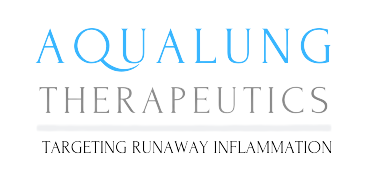Healing lungs, improving data, oncology research and more
06.19.2020
Jeff Gardner, Inside Tucson Business
Jun 19, 2020
With a major research university right in our backyard, a strong military presence and innovative companies throughout the metro region, there’s often a plethora of interesting science and technology news to be found in Southern Arizona. Here’s a breakdown of the most interesting recent developments.
Healing Lungs. The local biotechnology company Aqualung Therapeutics recently secured a $2.3 million award from the National Institute of Health to develop therapeutic antibodies for patients with Radiation-Induced Lung Injury. This fast-track award will help develop a therapeutic treatment for patients who undergo radiotherapy for treatment of lung and esophageal cancers and who are at risk for developing RILI. RILI is a potentially fatal toxicity in cancer patients, induced by radiation therapy that can result in inflamed lung tissue and radiation pulmonary fibrosis. Aqualung scientists identified a “novel upstream immune-based therapeutic target” in the development of RILI and have generated an antibody, ALT-100, which is designed to suppress the systemic inflammation and prevent radiation-induced lung fibrosis. Pulmonary radiation injury “manifests in approximately 8 percent of patients who receive thoracic radiation.
However, reports of the incidence of symptomatic radiation pneumonitis ranges from 1-34 percent of patients who receive thoracic radiation for malignancy.” According to Aqualung CEO Joe Garcia, there are currently no FDA-approved therapies for patients who experience RILI and Aqualung believes their preclinical evidence is compelling and supports the advancement of ALT-100/ALT-200 as a potential therapy for patients with thoracic cancer.
Improving Data. The National Science Foundation recently selected the local financial technology company Clear Core to participate in its “National Innovation-Corps Program” and to receive a grant to advance its product. Clear Core is a resident of the University of Arizona’s Center for Innovation, and uses information technology to help businesses better organize and understand their data. They are also developing anti-fraud measurements for data networks, and data visualization and processing. According to entrepreneurial lead Tim Strasser, Clear Core first wanted to address data problems for credit unions and local banks before moving to larger areas of work. As part of the National Science Foundation’s Innovation-Corps program, Clear Core is seeking to collect input, stories, and ideas to better assess the market needs in community financial institutions.“Data governance is supposed to fix the problem of data quality. The trouble is, what organization has the time and money to go fix twenty years of bad data – the answer is few, and in our experience, none,” said Ray Ragan, technology lead for the Clear Core NSF I-Corps project.
Virtual Internship. The University of Arizona’s BIO5 Institute – which combines the fields of biology, engineering and medicine – has hosted a seven-week summer research internship to nearly 500 Arizona high school students since 2007. But with the onset of COVID-19, that Keep Engaging Youth in Science Research Internship Program is going virtual. According to the BIO5 Institute, the KEYS program aims to educate and empower STEM students to explore their passions for scientific discovery and advance their academic, professional and personal goals. KEYS 2020 aims to do all of this while having the students work from home.
“With the opportunity this KEYS pivot provided, we are going to be able to introduce student participants to the concepts and tools required to work with big data, bioinformatics, virtual computing, programming, cybersecurity and many other aspects of data-intensive biomedical research,” said Uwe Hilgert, director of industry relations and workforce development at BIO5. “As this type of research is at the cutting-edge of scientific development, I can imagine this year’s KEYS will serve as an excellent pilot program with the potential to pursue grant funding to help support KEYS for the next three to five years.”
Oncology Research. The Tucson-based Research Corporation Technologies announced on June 4 that it had acquired Translational Drug Development (TD2), an integrated precision oncology medicine development organization. RCT is a technology investment and management company that “provides early-stage funding and development for promising biomedical companies.” TD2 provides translational preclinical services; regulatory strategic guidance, planning and document submission services; and clinical trial design and execution for innovative oncology-focused companies. According to RCT president Shaun Kirkpatrick, “The acquisition of TD2 represents an opportunity for a unique partnership with an outstanding management team and, by providing additional growth capital, we plan to add scale and enable the expansion of TD2’s current offerings. TD2 will continue its successful business model of providing focused and comprehensive oncology drug development solutions to rapidly advance products to patients most likely to benefit from these treatments.”

